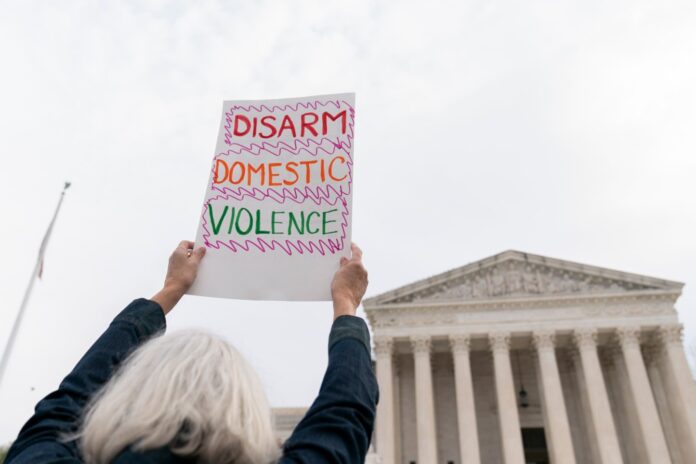The Supreme Court is on the brink of a pivotal decision that could redefine the landscape of gun rights in domestic violence cases. As the justices heard oral arguments in the United States of America v. Rahimi, survivors and advocates are stepping up, sharing harrowing stories, and emphasizing what’s at stake. The ruling in question could potentially disarm individuals with domestic violence restraining orders, a move that many see as crucial to preventing further tragedies.
Chloe Gayer, a survivor who faced the harrowing ordeal of her boyfriend’s gun threats, is among those speaking out. Her experience underscores the dire need for robust protections against abusers with firearms. “I want the Justices to know transgender people are not going away,” said a 15-year-old petitioner in the case, echoing the sentiments of countless individuals who view the Court’s potential decision as life-altering.
The case began with Zackey Rahimi, a Texas man who, despite being under a restraining order for domestic violence, unlawfully possessed firearms and ammunition. His conviction was initially upheld, then astonishingly reversed by the 5th U.S. Circuit Court of Appeals after the Supreme Court’s decision in New York State Rifle & Pistol Association v. Bruen. This case could set a dangerous precedent if not handled with the gravity it deserves.
Organizations like Everytown for Gun Safety, medical associations, and domestic violence support groups have filed amicus briefs, urging the Court not to ignore the lethal mix of domestic violence and gun possession. They point to staggering statistics: the presence of a gun in domestic situations increases the risk of homicide by 500%.
Yet, despite the clear danger, Rahimi’s defense argues that barring gun possession based on a civil restraining order infringes on constitutional rights. On the other side, advocates stress the lifesaving importance of such laws. This is about more than legal principles; it’s about the safety and lives of countless individuals across the country.
Mary Duplat, whose daughter’s life was cut short by gun violence at the hands of an ex-boyfriend, voices her fears that women’s rights are under attack. The Supreme Court’s decision on this case, coupled with its recent Dobbs ruling, paints a grim picture of women’s autonomy and safety.
As the Supreme Court deliberates, the voices of survivors like Gayer and Duplat resonate with a clear message: Protecting victims of domestic violence must take precedence over the gun rights of their abusers. The outcome of this case will not only impact those directly involved but will also signal to the nation where the Court stands on the intersection of gun control and domestic safety.



